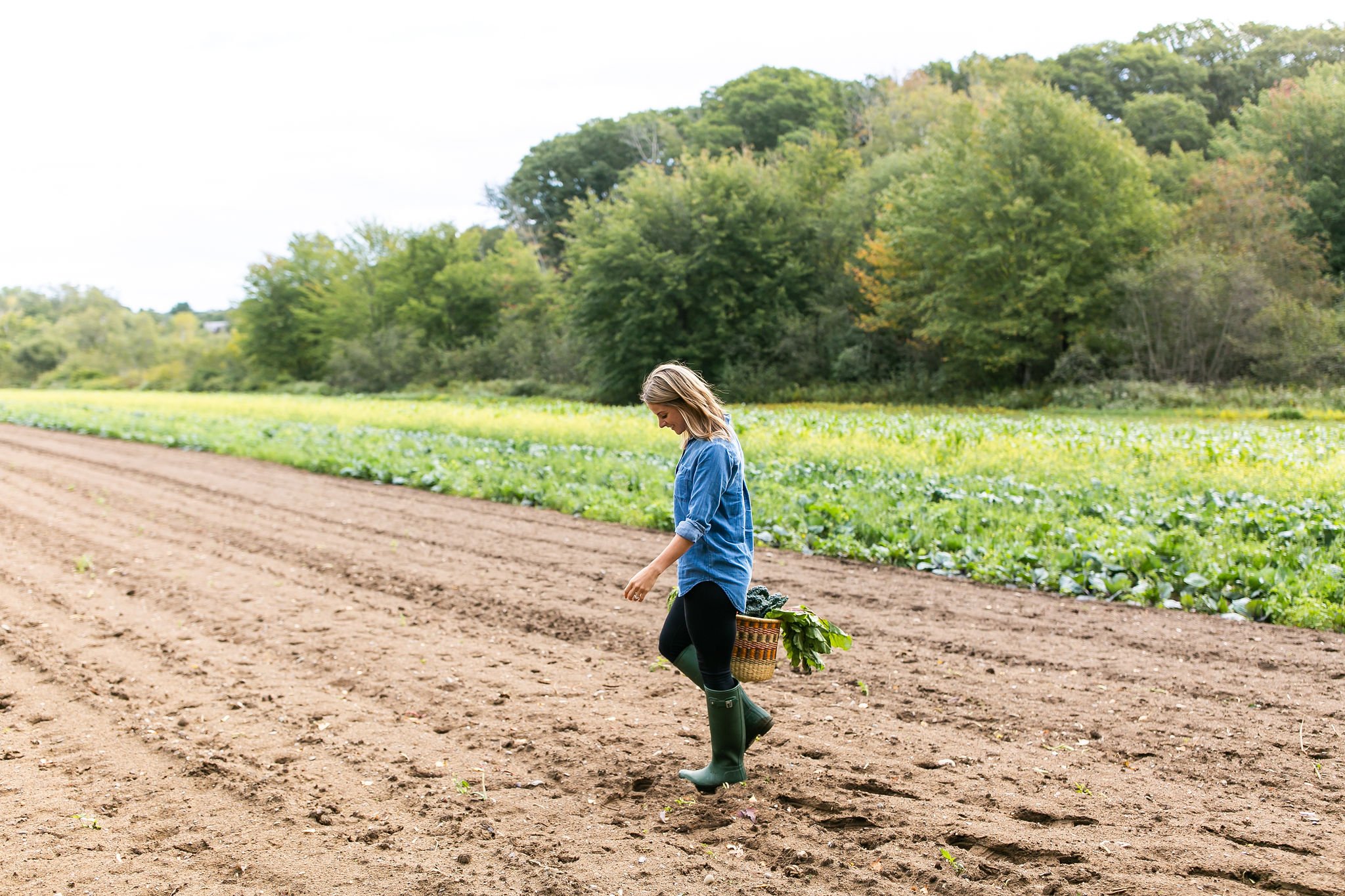How To Remove Pesticides From Your Produce
“Once upon a time all food was organic.”
If you're not buying organic produce at the grocery store, what exactly are you buying?
Conventionally grown crops are sprayed with pesticides to keep a longer shelf life for their travels across the country to your market. Sure, it may be great to get a fresh cucumber from Mexico, but pesticides are toxic chemicals with real health risks. When sprayed on crops, these pesticides can remain on the skin and even absorb into the flesh of the produce, which are then eaten by you — the consumer.
The average person eating non-organic produce consumes approximately 16 POUNDS of chemical pesticides every year.
The truth is, we are exposed to toxins everyday without even realizing it— in the air we breathe; the water we drink; the food we eat. Because we can’t always taste the difference between clean and contaminated air, food, and water, the extent of this exposure becomes extremely difficult to monitor.
But, we do know this: The United States uses about 1 billion pounds of pesticides each year, and only a tiny percentage actually reaches the intended target (the bugs) the rest ends up contaminating our food, water and air.
Let’s think about this for a moment — pesticides are toxic substances designed to kill bugs, the primary difference between humans and bugs (in a physiological sense) is size. When looked at this way, pesticides are slowly killing us.
In 2012, the American Academy of Pediatrics cited research that linked pesticide exposures in early life and "pediatric cancers, decreased cognitive function, and behavioral problems." -EWG 2015 Executive Summary
Repeated exposure to pesticides in our environment has been linked to skin, lung and eye irritation; hormone disruption; brain and nervous system toxicity; blood disorders, nerve disorders; birth defects; reproduction effects.
For this reason alone I try to buy organic produce as much as I can to reduce the amount of harmful pesticides my family is ingesting when they eat. It's as simple as that.
Unfortunately, buying organic produce isn’t always as simple. There are times when certain things stop us from getting the organic produce we prefer.
For instance, choosing organic can get expensive. Want an insider tip to pinch pennies and avoid pesticides at the same time? Check out EWG's Shopper’s Guide to Pesticides. These lists identify the crops with the highest amount of pesticide residue (Dirty Dozen) and those with the least amount of pesticides (Clean Fifteen). Next time you pick up groceries, save money on the Clean Fifteen by purchasing conventionally grown, but splurge for your own health and buy organic when it comes to the Dirty Dozen.
Other times, the organic produce you're looking for just isn’t available. The other day I hunted high and low for organic grapes but the grocery store didn’t have them in stock. So what did I do? I threw the conventional grapes in my cart and set myself on a mission to wash them.
Keep in mind studies have shown that washing your produce can reduce the pesticide residue, but won’t eliminate all pesticides.
In a study by the Environmental Working Group, they found at least one pesticide on 63% of the produce sample size they analyzed—even after being properly washed—and 10% of the sample had residue from 5 or more various pesticides.
For this reason, I still choose organic produce as much as possible, especially when I’m buying produce from the Dirty Dozen list.
Here’s how to clean your produce:
Fill a large bowl with 4 parts water to 1 part plain white vinegar (or 1 drop Basic H2 Organic Cleaning Concentrate).
Soak the fruit or vegetables you’d like to clean in the mixture for 20 minutes.
Rinse the fruit or vegetables well with water.
It’s as simple as that! And it’s a step in the right direction when buying organic produce isn’t possible. Even if you have organic produce, you’ll get the added benefit of removing bacteria that could make you sick.











The idea that you can get all of your nutrients from diet alone may have been true 100 years ago. But now?